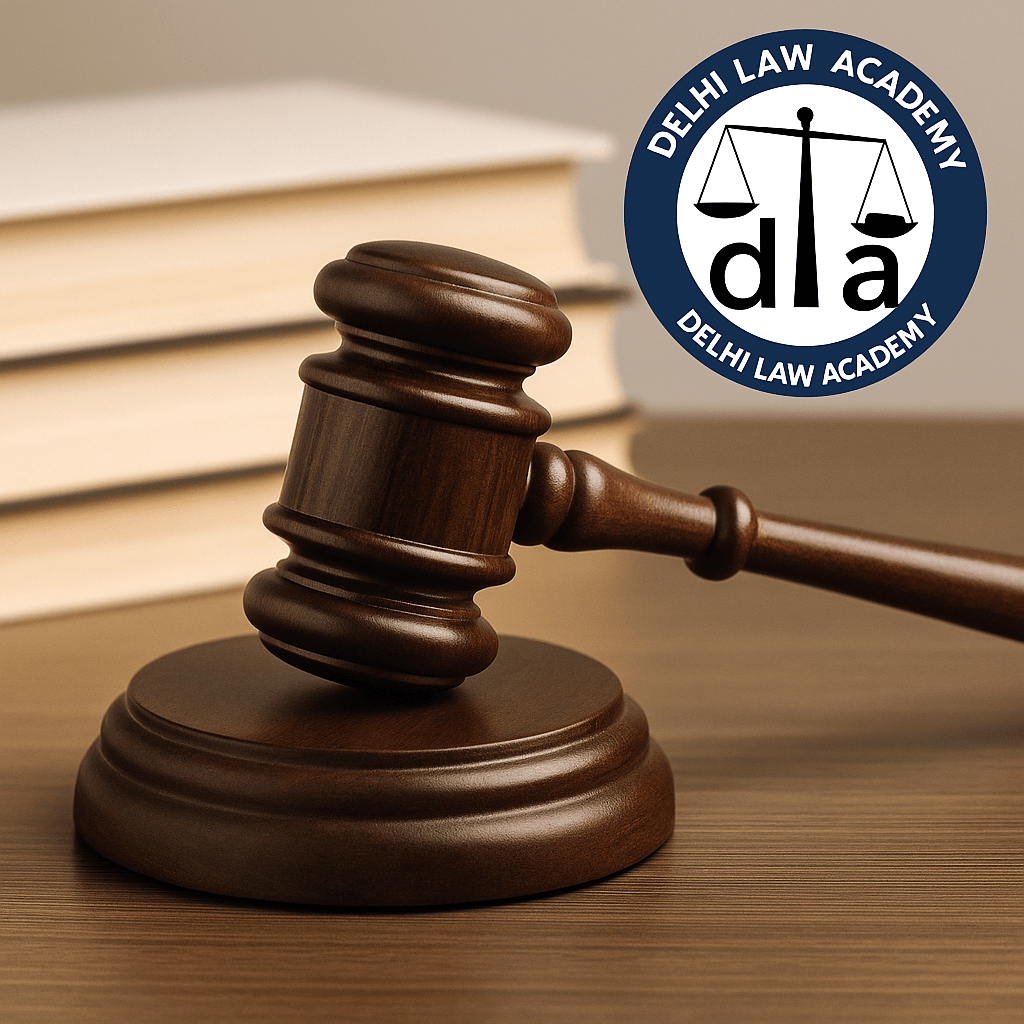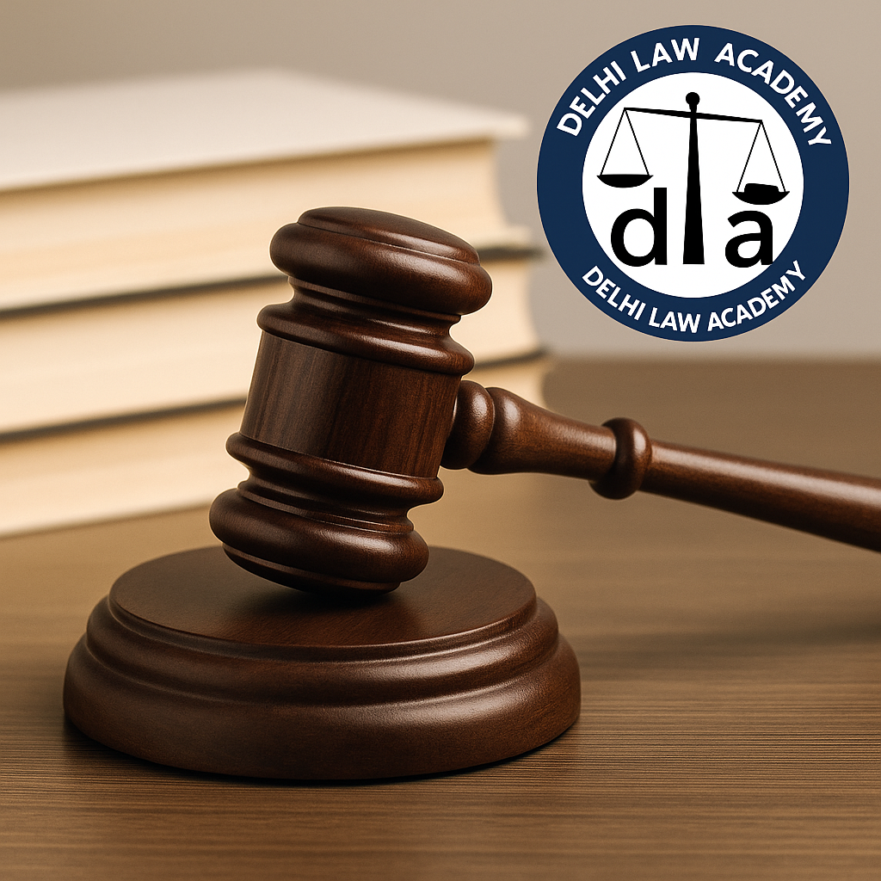
🏛 Latest 2025 Supreme C0urt Judgment on Hostile witnesses
Delhi Law Academy Jaipur presents below a Summarized Version of the latest Supreme Court Judgment on Hostile Witnesses in the case of K. P. Tamilmaran v. State delivered by a two-judge Bench comprising of Sudhanshu Dhulia and Prashant Kumar Mishra JJ on 28 April, 2025, for aspirants of RJS, DJS, PCS(J) and other Judicial Services throughout India.
K. P. Tamilmaran v. State — JUDGMENT
📖Facts of the case
This is a case of a dastardly murder of a young couple, Murugesan and Kannagi, who were only in their early twenties, when they were killed. Both of them were administered poison in full view of a large number of villagers. The masterminds and the main perpetrators of this macabre act were none other than the father and the brother of the girl Kannagi. The reason behind the murder of this young couple was that Kannagi, belonging to the ‘Vanniyar’ community, had dared to marry Murugesan, who was a ‘Dalit’ from the same village. So, at the root of this crime is the deeply entrenched hierarchical caste system in India, and ironically, this most dishonorable act goes by the name of honour-killing!
There has been an inordinate delay caused in this case. The incident is of 7th and 8th July, 2003, and the Trial was concluded only on 24.09.2021.
The long and inordinate delay which has been caused in this case, right from the lodging of the FIR, speaks volumes about the gross inefficiency at the hands of the prosecution on the one hand and dilatory tactics employed by the defence on the other hand, which together led to a slow trial.
The second and more crucial aspect is that many of the prosecution witnesses in this case have turned, what has come to be known as ‘hostile’; a fact which has been strongly pressed by the defence in their favour. The defence would also argue that the Trial Court and High Court have mainly relied on the testimonies of the family members of Murugesan, who are interested witnesses.
⚖️The Law on Hostile Witnesses
When a witness, produced on behalf of prosecution, deposes against the prosecution version and goes against his/her own previously recorded statements, the prosecution can request the Court to declare such a witness as hostile and seek permission from the Court to cross-examine its own witness. This is the procedure followed in a Trial, as we all know. In the present case, there are as many as fifty-one prosecution witnesses and it is also a fact that many of them have turned hostile by turning against their earlier statements made before the police under section 161 CrPC, and even before the Magistrate under section 164 CrPC, in some cases.
The Indian Evidence Act allows a party, with the leave of the Court, to cross-examine its own witness. As a general rule, the testimony of a witness who has been cross examined by the party which produced him/her will not stand totally discredited, and it is for the Court to consider what value should be attached to this testimony. After referring to a series of judgments on this point, the Court in Sat Paul held as follows:
“From the above conspectus, it emerges clear that even in a criminal prosecution when a witness is cross-examined and contradicted with the leave of the court, by the party calling him, his evidence cannot, as a matter of law, be treated as washed off the record altogether. It is for the Judge of fact to consider in each case whether as a result of such cross-examination and contradiction, the witness stands thoroughly discredited or can still be believed in regard to a part of his testimony.”
The phrase ‘hostile witness’ has come to be used for a witness who gives a statement contrary to the story of the side for which he/she is a witness. All the same, because a witness has supported some, though not all, aspects of a case, it would not automatically mean that this witness has to be declared ‘hostile’. A party can cross-examine its own witness under Section 154 Evidence Act, even without getting a declaration of ‘hostility’. The only restriction to cross examination under Section 154 Evidence Act is that the party, who seeks to cross-examine its own witness, must obtain the leave of the Court. Whether there is a declaration of ‘hostility’ or not, one thing is clear that evidence of witness, who has been cross-examined under Section 154 Evidence Act by the party who called such witness, cannot be washed off entirely and it is for the Court to see what can be retrieved from such evidence.
The statements made by a witness in Court, including in cross examination, either conducted by the opposite party or by the party who produced the witness, would come under the definition of ‘evidence’ under Section 3 of the Evidence Act, since this evidence has come before the Court with its permission. Moreover, there is no specific bar under the Evidence Act which mandates that such evidence has to be discarded. Thus, it would form part of the entire evidence which the Court can examine while arriving at its decision, and it is for the Court to determine what value has to be given to that piece of evidence or how such evidence has to be used in a given case.
Viewed from a different perspective, the rejection of the entire testimony of a prosecution witness, who has been cross examined by the prosecution, would not only harm the case of the prosecution but perhaps also of the defence in a given case. This is because as the law stands today, the benefit of the testimony of such witness can be taken by both the prosecution and the defence, allowing them to use it to build their case [See: Paulmeli v. State of T.N. (2014) 13 SCC 90, Ramesh Harijan v. State of U.P. (2012) 5 SCC 777]. In any case, ultimately, it will be the cause of justice that will suffer if the testimony of such witness is totally discarded. It is, therefore, rightly left to the discretion of the Court to test the evidentiary value of such a testimony.
It is though trite and much overstated but the maxim “falsus in uno, falsus in omnibus”, is not applicable to our criminal justice system. It is for the Court to distinguish the wheat from the chaff while dealing with the depositions of a hostile witness. Courts can rely upon that part of the deposition of a hostile witness which is corroborated by other evidence on record.
📜Final Judgment
We see no reason to interfere with the impugned judgment of the Madras High Court, and these appeals are, accordingly, dismissed.
All those appellants, who are on bail, are directed to surrender within two weeks from today to undergo their remaining sentence.
📘 For more updates on Supreme Court Judgments and detailed study material for RJS, DJS, PCS(J) and other Judiciary Courses, visit Delhi Law Academy’s Complete Study Material for Judiciary .
Student Testimonials
Contact us
📍 Delhi Law Academy – Jaipur Branch
6C, Tower 2, Coaching Hub, Pratap Nagar, Jaipur – 302033
📞 Phone:
+91 9911916552,
+91 8447285606
✉️ Email:
contactus@delhilawacademy.com
🌐 Website:
www.delhilawacademy.com






